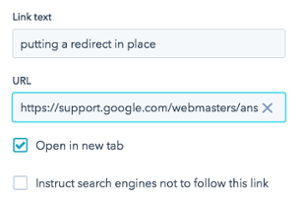While identity management platforms can help marketers, ask these important questions first before starting the buying process.
An identity resolution platform can be a key tool for marketers to understand who their customers are and how to comply with the many different consumer privacy regulations. Deciding If your company needs one requires the same steps involved in any software adoption. The first thing to do is a comprehensive self-assessment of the organization’s business needs, staff capabilities, management support and financial resources. The following questions can serve as a guideline for this.
Does our customer data reside in disconnected silos throughout the organization?
Organizational silos between departments such as sales, marketing, procurement or customer support can lead to inconsistent customer experiences with a brand. An identity resolution platform can connect these systems. It will integrate consumer identifiers across channels and devices in a way that is accurate, scalable and privacy compliant to create a persistent and addressable individual profile.
Do we have customer knowledge gaps that could be filled with trusted second- and third-party data?
First-party data is essential for building a strong relationship between your brand and customers. However, identity graphs using anonymized second- and third-party data can provide valuable demographic, location, financial and other information that can fill gaps in customer insights. As data collection and matching techniques improve, creating a 360-degree view of customers through identity resolution platforms may make sense.
Are we in compliance with CCPA, GDPR and other data privacy regulations?
Data breaches and misuse of consumer data continue to make headlines, leading to an increase in privacy regulations. It’s crucial to ensure your data governance practices comply with the EU’s General Data Protection Regulation (GDPR) and/or the California Consumer Privacy Act (CCPA). While collecting and using consumer data is an essential part of marketing, it also escalates the risk of damaging your brand and incurring legal consequences.
Can we successfully integrate our existing customer data systems with an identity resolution platform?
Your various martech and ad tech systems absolutely must be able to communicate with each other. If they can’t, your organization likely would benefit from an identity resolution platform. This platform can incorporate identifiers and profiles between and within these systems for consistency and accuracy, creating a persistent and addressable individual profile
Does our C-suite support identity resolution initiatives?
Most C-level executives overestimate their marketing organization’s customer identity accuracy and persistence, according to a Forrester study. This can lead to inadequate budgeting, campaign measurement and performance, and broken customer experiences. Therefore, it is critical to secure C-suite support for identity resolution initiatives across the organization.
How would we use identity resolution?
Identity resolution has many marketing use cases, from complying with data privacy regulations to developing more accurate lookalike audiences to improved marketing segmentation and targeting. Identifying the use cases that would most benefit your organization is fundamental for establishing and prioritizing the capabilities you’ll need.
What KPIs do we want to measure and what decisions will we make based on the data?
It’s critical to measure the impact of an identity resolution platform on your marketing ROI. Resolving customer identities will provide new cross-sell and upsell opportunities because your marketing team knows more about your customers. Although KPIs vary by organization and/or industry, you should be able to measure incremental lift in metrics such as average order value, average revenue per user, basket size, response rates or customer retention.
What is the total cost of ownership?
Most of these platforms use on-demand pricing, meaning customers pay a monthly subscription price that will vary by usage. Pricing is typically based on the number of data records or customer profiles under management or the number of matches or API calls. Some also have add-on customer support options.
The post Does your organization need an identity resolution platform? appeared first on MarTech.
MarTech(3)




